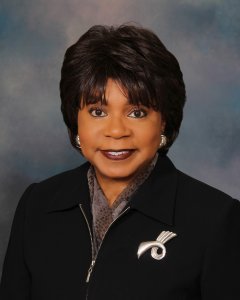Presented By: University Library
Brown v. Board of Education: The Legacy Continues
U-M Reverend Dr. Martin Luther King Jr. Symposium

Cheryl Brown Henderson talks about her personal experience with segregated schools and the story of how Brown v. Board of Education came to be.
The case was elevated to the U.S. Supreme Court, which in May of 1954 ruled unanimously that racial segregation in public schools violated the Fourteenth Amendment to the Constitution, which prohibits states from denying equal protection of the laws to any person within their jurisdictions. The decision declared that separate educational facilities for white and African American students were inherently unequal.
Brown Henderson is the daughter of the late Reverend Oliver L. Brown who in 1950, along with 12 other parents in Topeka, Kansas, and led by attorneys for the NAACP, filed suit on behalf of their children against the local Board of Education. Their case joined with cases from other states on appeal to the U.S. Supreme Court, and became known as the landmark decision, Brown v. Board of Education of Topeka, Kansas.
The case was elevated to the U.S. Supreme Court, which in May of 1954 ruled unanimously that racial segregation in public schools violated the Fourteenth Amendment to the Constitution, which prohibits states from denying equal protection of the laws to any person within their jurisdictions. The decision declared that separate educational facilities for white and African American students were inherently unequal.
Brown Henderson is the daughter of the late Reverend Oliver L. Brown who in 1950, along with 12 other parents in Topeka, Kansas, and led by attorneys for the NAACP, filed suit on behalf of their children against the local Board of Education. Their case joined with cases from other states on appeal to the U.S. Supreme Court, and became known as the landmark decision, Brown v. Board of Education of Topeka, Kansas.